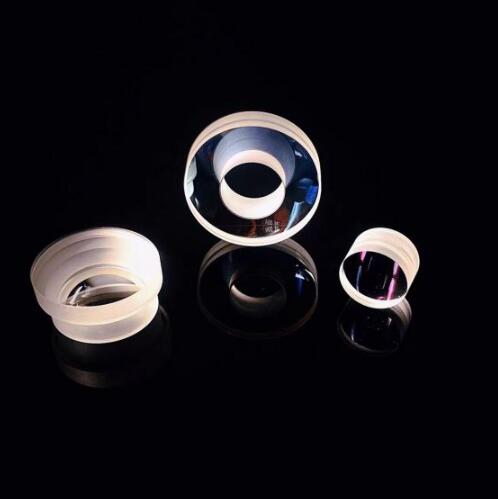Product Information
| Brand Name | Certification | Model | |||
| Min.Order | Other(s) | Size | CM* CM* CM | Payment Terms | T/T |
| Weight | Customized service | Yes | Place Of Origin |
Product Description
A biconvex lens means that both surfaces of the lens are convex. Its focal length is positive and mainly for the function of focusing. It is commonly used in imaging relay system and object imaging at finite conjugate distance. The smaller the conjugate ratio is, the smaller the aberration will be.
Oplens can not only customize the common plano-convex lens of N-BK7 or fused quartz, but also customize the biconvex lens of any glass material.
You are welcome to contact us for customized biconvex lenses.
Parameters
|
Material |
Optical Glass |
|
Surface Flatness |
< λ/5 @ 633nm |
|
Scratch/Dig |
< 40/20 (both sides) |
|
Eccentricity |
≤ 1arcmin |
|
Focal Length Tolerance |
< ± 1% |
|
Diameter Tolerance |
< + 0.00/ - 0.02mm |
|
Thickness Tolerance |
< ± 0.05 |
|
Clear Aperture |
≥ 95% of diameter |
Optical lenses or optical system is a complex device with high requirements, which demands not only the combination of high-precision optical lenses and optical mechanical parts, but also professional assembly environment to ensure their key arguments, such as cleanliness, coaxiality, focal length, distinguishability and other indicators, are not affected, so as to achieve the best optical performances of the end product. Because of this, Oplens set up its own assembly department in 2021, which not only improves our production line but also can better meet the needs of customers for lens assembly. If you don’t have such a lens assembly environment or inspection conditions, we are capable to help you in this respect.
What Processes are Involved in Optical Assembly Manufacturing?
Optical assembly processes may include mounting, alignment, precise optical pathway placement, beam manipulation, focusing, optical bonding, and sonic welding techniques.
Typical Optical Component Assembly Work Includes:
Bonding glasses & filters into wheels
Laminating glasses & filters
Product labelling & identification
Gluing glass to glass components
Mounting in screw mounts and holders
Gluing glass to metal assemblies
Press fitting glass lenses into housings.
To outsource your lens assembly, contact our sales team who will advise you on your next move.

Linda Lim

Achromatic Lens Two-plate achromatic lens Spherical Lens Manufacturer
Certification: Min.Order: Other(s)
Biconcave Lens Double Concave Lens High Precision Optical Components
Certification: Min.Order: Other(s)